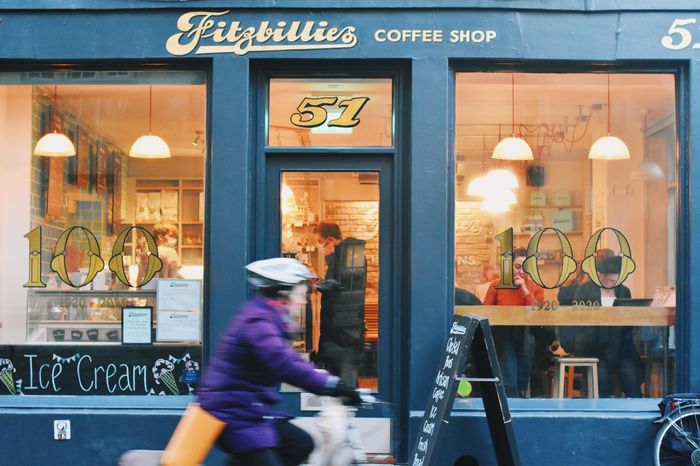The cult of the Cambridge intern
In speaking to some of Cambridge’s flock of interns, Alex Levy and Bella Shorrock delve into an often opaque world

Internships. Like it or hate it, they’re a central part of the Cambridge experience. Upon entering second year, you’ll likely be surrounded by students laser-focused on securing their dream placement. By third year, half of your peers seem to have future jobs promised at City firms they spent eight weeks at over summer.
But how valuable is the internship experience? Is it really needed in order to secure a job after uni? And what about other, less esteemed forms of work – work that students might have to do over vacation just to fund their studies? Varsity has spoken to students who’ve undertaken internships in various fields, to try and find more about the impetus behind seeking an internship, and how valuable the experience really is.
The yearly flurry of slick new LinkedIn profile pictures is testament to the flocks of student interns who descend on the City each summer, cutting their corporate teeth behind the plate glass exteriors of the world’s largest firms. From investment banking to commercial law, accounting, insurance and consulting, getting a proverbial foot in the door somewhere in the Square Mile can be a lucrative inroad to an equally lucrative career. It can be hard to see past the relative glitz of these industries – internship opportunities in other fields are often harder to seek out and have smaller intakes.
Most people were happy to tell us about their internships; others were more cautious. One third-year student refused to speak to us out of fear of losing an internship. That alone illustrates how important these experiences are to students – and how closely guarded they are.
One student we spoke to studied Natural Sciences and set out on the well-trodden path into investment banking. “I literally didn’t have any reasons”, she responded when I inquired as to her motivations, “my mate was doing it and my mum said, why not? I also wanted the money…and I knew I was going to quit.” After a competitive application process, she yielded three offers from around 20 applications – an enviable success rate, especially considering one was in the UK investment banking team at American giant Citibank. Beyond the paycheque for the week, the ultimate prize is a return invite for the following summer, known in the biz as ‘conversion’.
“The biggest thing is “who you know” - “if you don’t have the connections, you don’t have experience.””
These summer-long internships are the next waypoint on the road to bonuses, expense accounts and business cards, giving students a real insight into life on the job. Long hours are combined with a taste of London socialising on a banker’s salary: ‘Thirsty Thursday’ is an institution, with groups of interns and analysts spilling into pubs and bars with credit cards primed and ready to go. Not that you can fully relax over cocktails and pints – there is an understandably competitive culture among those vying for graduate positions, with the student referring to a culture of ‘face time’: to be in with the best chance, “you had to be the first one in the office and the last to leave. And you also had to be funny, so that they would like you”. This last stipulation becomes trickier when we consider the culture, which she described as dominated by male interns from Economics-heavy universities like Warwick. As in many settings, boundaries could blur: “It would be late at night, like 11pm, and everyone would be a bit delirious and crack jokes. It was a weird environment”.
The importance of this out-of-office socialising was clear with many of the students we talked to. Jude, who interned at consulting heavyweight Deloitte, emphasised the importance of ‘networking’. “A lot of it is about personality,” he told us. In that sense, it’s a highly exclusive environment. While internship applications do often have access schemes – for example, for BME students – Jude told us that there were fewer access opportunities for those from disadvantaged socioeconomic and class backgrounds. The biggest thing is “who you know” – “if you don’t have the connections, you don’t have experience.” And it’s that experience that matters in a place like Deloitte. It was only because Jude’s mum works in the City, he told me, that he even knew “how to speak.” “I wouldn’t have been able to network if that had been my first time in a corporate environment.” Once you’re in the network, you’re in. In terms of inclusivity, it therefore seems that the application process is “incomplete.”
In that sense, proximity to central cities is crucial. Just like bankers’ ‘Thirsty Thursdays’, Jude tells me that companies like Deloitte hold weekly networking drinks and socials in the heart of cities like London – but if you live outside the city centre, like him, then attending them is difficult and expensive. This is just another example of barriers to access that make such positions more exclusive.
The work itself seems to vary. While some told us that their experience was relaxed, more about socialising and getting to know how the company worked, others found it arduous. Miriam, a third-year engineer, told us that she found her internship at a consultancy company, far “more tiring” than she expected. The lack of flexibility was one thing she struggled with; while Cambridge life is “non-stop”, she can choose the hours she works at uni – “whereas here, you need to be online from 9-5.30.” She tells me that wasn’t helped by the hour-long commute she made every day to and from the office. The long hours have left little time for herself; she says she wished she had freer evenings, to do things like cook or go to the gym. “I have less time and I’m more tired than I thought I was going to be.”
“The cult of the interns can be yet another manifestation of toxic competition in Cambridge”
As we talked to different students, a picture emerged of a tantalising golden ticket: if you secured a Spring Week in first year, you would receive a healthy leg-up on the ladder to a graduate position. As the internship process comes to a close, students start thinking about what follows – the prospect of a job offer. Our Citi intern quit her internship (coming to be known as ‘the girl who quit Citi’) after three weeks in favour of graduate medicine, a less glamorous vocation which nonetheless won out. By contrast, every other member of her team received a job offer. Jude has the promise of a graduate job in Deloitte. But not everyone uses their internship as a ticket to corporate life; Miriam was offered a job too, but decided to pass it up in the hope of something more flexible and hands-on.
To succeed in the world of internships, awareness of the system is crucial. If you fail to prepare early, the brief window of opportunity slams shut. Without the socio-cultural capital or departmental guidance that opens the door, you can find yourself outside of the circuit of employability. Awareness of the system often comes from family or social connections, and is necessary even before grappling with cover letters and interviews, writing scores of applications in your first term, while simultaneously getting to grips with university life. Despite the Cambridge fixation on securing the corporate dream, the cult of the interns can be yet another manifestation of toxic competition in Cambridge. They are essential for certain fields but for others are merely the conventional, express route into the working world. Perhaps we need to face up to the changing nature of the working world, and the long and dynamic careers many of us will pursue – internships can be short cuts, but they are only the beginning.
 News / Cambridge students set up encampment calling for Israel divestment6 May 2024
News / Cambridge students set up encampment calling for Israel divestment6 May 2024 News / Cambridge postgrad re-elected as City councillor4 May 2024
News / Cambridge postgrad re-elected as City councillor4 May 2024 News / Some supervisors’ effective pay rate £3 below living wage, new report finds5 May 2024
News / Some supervisors’ effective pay rate £3 below living wage, new report finds5 May 2024 Fashion / Class and closeted identities: how do fits fit into our cultures?6 May 2024
Fashion / Class and closeted identities: how do fits fit into our cultures?6 May 2024 Features / Cambridge punters: historians, entertainers or artistes? 7 May 2024
Features / Cambridge punters: historians, entertainers or artistes? 7 May 2024






